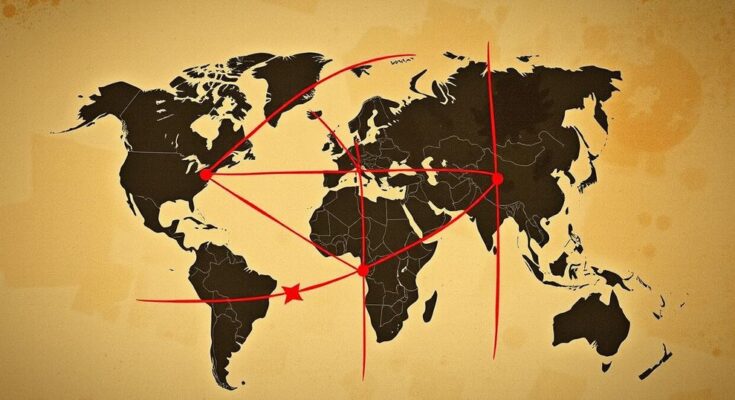Sudan recalled its ambassador from Kenya after Nairobi hosted RSF meetings aimed at forming a rival government. The Sudanese Ministry of Foreign Affairs criticized Kenya’s actions as a violation of Sudan’s sovereignty, while political figures in Kenya condemned the move. The conflict between the army and RSF has resulted in significant humanitarian crises, raising concerns over Kenya’s role in regional stability.
Sudan has recalled its ambassador from Kenya in response to Nairobi hosting meetings intended to establish a rival government supported by the Rapid Support Forces (RSF). This decision was announced by the Sudanese Ministry of Foreign Affairs after the Founding Alliance for Sudan was formed in Kenya, aiming to create a parallel government to that of Port Sudan, led by the Sudanese army. The RSF has been accused of committing genocide in Darfur, and its leader, General Hemedti, is under U.S. sanctions.
Kenyan President William Ruto faces criticism from both political figures and civil society members for permitting the RSF event in Nairobi. Former vice-president Rigathi Gachagua expressed discontent on social media, stating, “We are welcoming warlords. We are making headlines for discovering a new way to embarrass the nation.” Lawyer Willis Evans Otieno remarked that Kenya should not become a “breeding ground for foreign insurgencies.”
The Sudanese foreign ministry characterized President Ruto’s actions as a disgraceful support of a conspiracy infringing on Sudan’s sovereignty. The Ministry summoned its ambassador for consultations in protest against Kenya facilitating the meetings of what it labels as a “rebel militia.” The RSF has announced plans to sign a founding charter aimed at establishing a “peace and unity government.”
Since the conflict erupted between the Sudanese army and the RSF in April 2023, the situation has worsened, resulting in thousands of deaths and displacing over 12 million people. Control of the country has become polarized, with the army dominating the north and east, while the RSF controls the west and considerable areas in the south. The ongoing war has severely fragmented Sudan, prompting warnings from international representatives, including a UN spokesman, regarding the possible escalation of the crisis.
The Kenyan foreign ministry defended its role in hosting the RSF by indicating its alignment with peace negotiations, countering Sudan’s accusations against Ruto of prioritizing commercial interests, particularly with the UAE, which has been implicated in supporting the RSF militarily. Concerns are rising among human rights groups regarding Kenya becoming a hub for transnational oppression, as expressed by Martin Mavenjina from the Kenya Human Rights Commission and Otsieno Namwaya from Human Rights Watch, who highlighted potential legal ramifications for Kenya’s international standing.
This geopolitical tension occurs against a backdrop of increasing incidents of abductions of political opponents in Kenya, further complicating the nation’s international relations. The abduction of Ugandan leader Kizza Besigye earlier this year raises alarms regarding Kenya’s adherence to international law and respect for human rights.
The diplomatic tensions between Sudan and Kenya escalated following Nairobi’s hosting of meetings to support a rival Sudanese government backed by the RSF. Sudan has condemned these actions as violations of its sovereignty, leading to the recall of its ambassador. This situation highlights the complexity of regional politics, human rights concerns, and the implications for Kenya’s standing in the international community, particularly as it faces criticism for potentially becoming an arena for foreign insurgencies.
Original Source: www.rfi.fr




